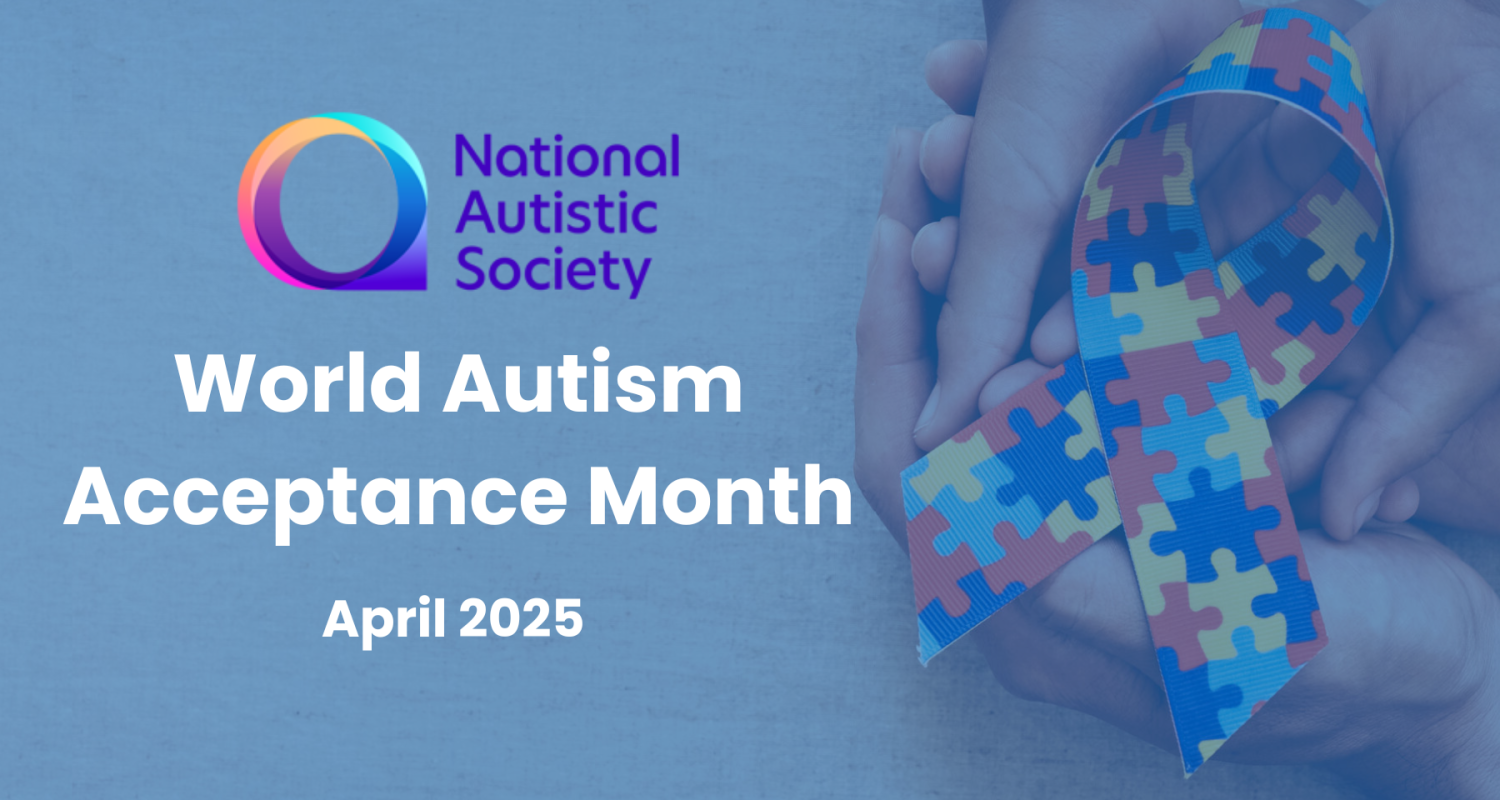Autism Acceptance Month – April 2025
April is World Autism Acceptance Month, a time to reflect on the importance of understanding, supporting, and celebrating individuals on the autism spectrum. This month serves as a reminder of the need for greater awareness, but also for an active shift towards real acceptance in all aspects of society. For the social care sector, this period presents an opportunity to evaluate and strengthen the way services are delivered to autistic individuals and their families, ensuring that inclusion, respect, and empathy are at the forefront of care provision.
Why Autism Acceptance is Crucial in Social Care
The National Autistic Society (NAS) emphasises that autism is not a condition that needs to be “fixed,” but rather a different way of experiencing and interacting with the world. Unfortunately, too often, social care services fail to meet the needs of autistic individuals, relying on a one-size-fits-all approach rather than recognising the diverse needs of the autism spectrum. The shift from autism awareness to autism acceptance is essential in changing this dynamic.
Acceptance means moving beyond simply understanding the condition and recognising the unique strengths and challenges that autistic people bring. It means providing services that are not just reactive, but proactive in creating environments where individuals can thrive, supported by compassionate and knowledgeable professionals.
The Role of Social Care Providers in Autism Acceptance
For social care providers, World Autism Acceptance Month offers an opportunity to ask critical questions about the services they provide:
- How inclusive are your services for autistic individuals? Social care services should be tailored to the individual, offering support that aligns with their preferences, needs, and goals. This could include adjusting communication methods, offering sensory-friendly environments, or ensuring staff have the necessary autism-specific training.
- Are your staff members equipped with the skills to understand and support autistic individuals? For autistic individuals to feel fully supported, social care staff need the proper training and resources. This includes understanding autism not as a deficit, but as a different way of being that comes with both strengths and challenges. By focusing on creating an environment that celebrates neurodiversity, social care workers can become better equipped to offer a higher standard of care.
- How do you advocate for the needs of autistic individuals in wider society? Social care organisations often serve as advocates for their clients, helping them to access services and navigate the world around them. This advocacy role becomes even more significant during Autism Acceptance Month, as social care professionals can lead efforts to break down barriers to inclusion in communities, workplaces, and beyond.
Get Involved on Social Media and Fundraise
As part of Autism Acceptance Month, it’s important to share and amplify the message of acceptance and understanding on social media. You can contribute by using hashtags like #WorldAutismAcceptanceMonth and #WAAM25 to join the global conversation. To make it easier for you to get involved, the National Autistic Society has created a social media toolkit, which you can download and use to help spread awareness and create greater acceptance of autism.
Additionally, there are several ways you can get involved and fundraise to support the autism community:
- Walk 5k this April: Participate in a 5k walk this month and raise funds for autism support. Learn more here.
- Join a Spectrum-Coloured Walk: Take part in a walk to celebrate autism acceptance. Find out more here.
- Fundraise Your Own Way: If you have your own fundraising ideas, you can create your own initiative to support the cause. Start your fundraising here.
Our Caring for People with Autism Course
Our course provides detailed insight into some key topics, such as; what an “Autism Spectrum Condition” is, how autism affects people, how to improve communication with autistic people and how to reduce the incidence of behaviours that challenge.
Our Caring for People with Autism course incorporates the most up-to-date guidelines and managers have a vital responsibility to ensure their staff are trained in this area.
Follow us on Facebook to stay updated with the latest in Social Care!
Get In Touch with us today!
Talk to our team on 020 3129 5667
Email us on: info@caretutor.org


